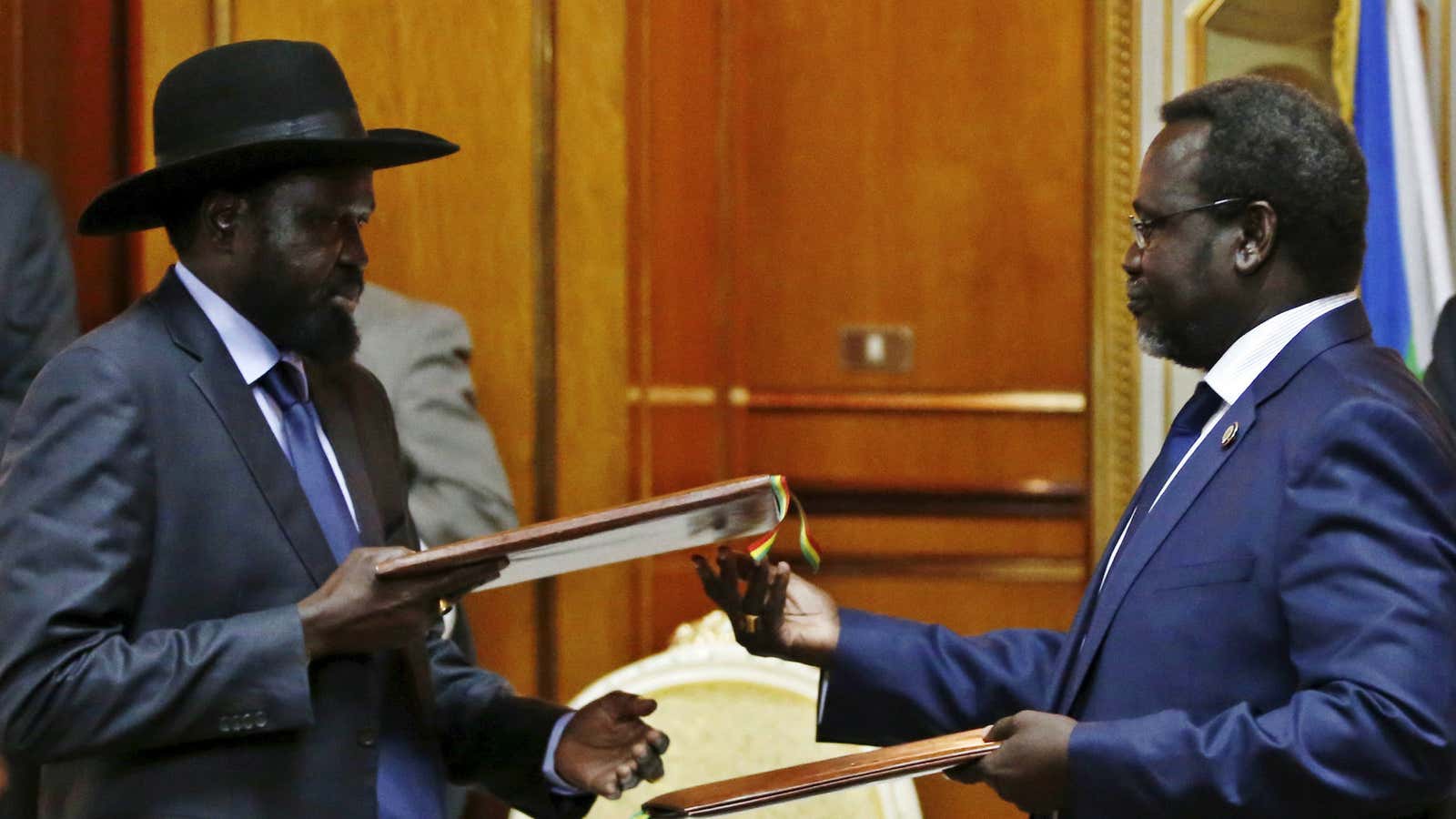South Sudan’s peace deal is stuck after the government and rebels missed yet another deadline this weekend to form a transitional government after two and a half years of civil war.
Rebel leader Riek Machar, an ethnic Nuer, was to return to the capital Juba from Ethiopia last Monday (April 18) to become vice president to president Salva Kiir, a Dinka, according to a peace deal signed eight months ago. But in what became a circus, Machar missed flight after flight as the government refused to grant landing permits while the rebel leader tried to pack extra soldiers on the planes.
Now, the United States, the peace deal’s principal backer, has cancelled Machar’s flights to Juba, bringing the formation of the new government to an uncertain but not unexpected halt. Machar supporters are now asking the United Nations to help transport the rebel leader to Juba. His top general Simon Gatwech arrived Monday afternoon, but it’s unknown if Machar will follow.
“It’s no surprise that implementation of the agreement in general has been delayed repeatedly,” said J. Peter Pham, director of the Atlantic Council’s Africa Center. “There’s a profound lack of trust between the two sides.”
Kiir and Machar haven’t shown much interest in coming together. They have signed and broken half a dozen ceasefires during the war, but the international community is determined to make what Pham calls a ”forced marriage” work. Mistrust is particularly acute among rebels, many of whom fled Juba in 2013 when government troops massacred Nuer in the city. Tanks leveled Machar’s house at the time.
“[The rebels are] being asked to trust that the forces that tried to kill them two years ago, while it was not a military conflict, after two years of military conflict will not try to get it right the next time around,” Pham said.
Eight months on, the peace deal has accomplished little. Fighting continues, aid groups are still blocked from delivering relief, and political prisoners remain in prison.
The deal also compels the government to pull troops from Juba so the rebels feel safe coming home, but few believe they’ve done so, and international ceasefire monitors have yet to verify compliance.
Some question whether the deal even matters anymore, as key provisions are now irrelevant. One clause gave Machar control of two of South Sudan’s ten states, but in December Kiir redrew the country’s map to create 28 states, undermining that provision and sparking violent clashes along new borders.
“It’s a real violation of the agreement, which is still a time bomb,” says parliament minority leader Onyoti Adigo of the 28 states, speaking to Quartz.
Even if the new government somehow forms, it is unlikely to bring peace. Kiir and Machar were president and vice president before the war—the deal essentially resets South Sudan to the status quo that sparked the conflict in the first place.
“From far away it looks like there will be big reforms, but no [way will that happen], because they will have the same expectations, the same way of looking at each other, the same suspicion,” said Jacob Chol, dean of Juba University’s political science department.
